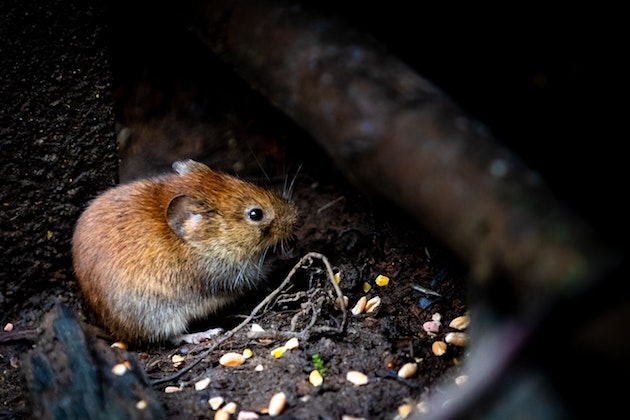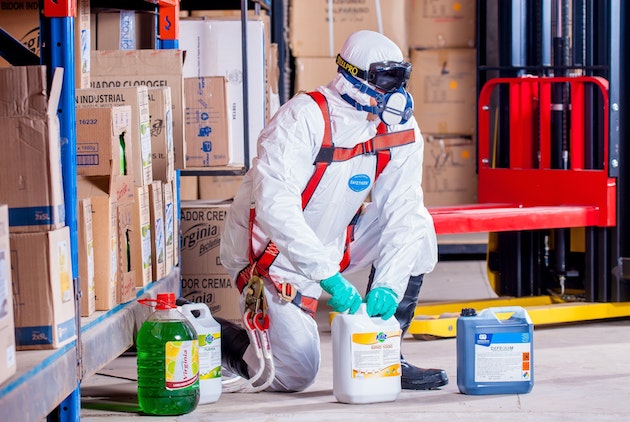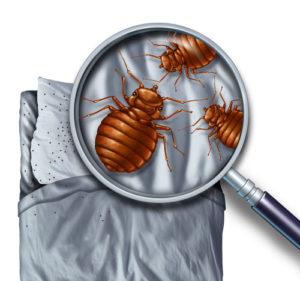As a human race, we rely heavily on the use of pesticides. Not only do they help yield crops and keep us fed, pesticides also come in handy when combatting residential pest control infestations. However, are some pests resistant to pesticides? The idea of this can be a scary to contemplate. But there are a growing number of pests that are resistant to the use of pesticides. In this post we are going to take a look at the most common pests that could infest any home or business, and why they are becoming immune to the usual pest control chemicals.
Why Are Some Pests Resistant To Pesticides?
There are over 70,000 different species of pest in the world. All of these species can cause damage to our homes and businesses. To help alleviate the global pest problem, a lot of pesticides have to be used. In fact, back in 2014 it was estimated that 18,000 tonnes of pesticides had to be used in the UK alone. The overuse of these pesticides is what is causing the resistance in common pests.

Thankfully, not all pests are becoming resistant to pesticides. There are a fe that stand out though. Here we are going to explore a select few of these pests. This will help you decide on hiring a company with more effective pest control methods if you need to treat these pests in the future.
Rats
You have probably heard of super rats. These are a strain of rat that has evolved to become incredibly resilient to pest control. These rats are one of the pests most resistant to pesticides in the UK. Multiple mutations and changes to the rats‘ DNA has made them impervious to certain toxins in common rodenticides. Within their DNA is a new genetic strand that protects them from the poison.
In certain small towns and villages in the UK, there has been an almost 500% increase in rodent numbers due to their immunity to pesticides. Alternative methods are being used to treat rat infestations, such as rat traps. However, the alternatives haven’t yet been as effective as pesticides. More powerful chemicals are being developed to treat rodent infestations.
Mice
Another member of the rodent family, it seems mice have also made it onto the list. Why are these small pests resistant to pesticides, you may wonder. More commonly found in European mice, the immunity is, once again, down to a genetic mutation. It is the over exposure to chemicals that has rendered pesticides useless in exterminating these particular mice.

The most common pesticides for mice contains warfarin. This is an anti-coagulant that prevents blood clots in human beings. In a mouse, it causes fatal bleeding and is a powerful tool against rodent infestations. But because the creatures have been evolving, they are now able to survive warfarin. This is due to cross-breeding and development of completely new strands of DNA. As a Darwinian reaction to this method of pest control, some colonies of mice have become immune to it. Mice exterminator professionals in London are working to find new ways of controlling mouse infestations to keep us safe from these pests.
Bed Bugs
Bed bugs have long been a front runner in pesticide resistance. A bed bug has a very short reproduction cycle, as well as being resistant to most poisons, making them a hard pest to treat with chemicals. Their rate of reproduction causes infestations to spread rapidly. Heat and steam are now the most commonly used methods of treating infestations. And the most effective.
To kill a bed bug infestation using pesticides would require a chemical with an extraordinarily high concentration. Using this kind of pesticide in commercial or residential buildings would be very dangerous to humans and pets. This is why non-chemical methods are now almost always used by professional pest controllers for bed bug problems.
Heat treatment is so effective for bed bugs because the high temperatures kill all life stages. Plus the heat can permeate many different surfaces where bed bugs may be hiding.
Cockroaches
Cockroaches are famous for being able to survive a nuclear explosion. Which is why it may come as no surprise that pesticides are pretty useless against them. Cockroaches have evolved much like other insects that gain a resistance to common pesticides. And because they only live for around 100 days, their genetic mutation for immunity passes from generation to generation very quickly.

Many different immunity experiments have been carried out on German cockroaches to find out what makes these pests resistant to pesticides. Lab technicians have tested their resistance to the most commonly used pesticides in the UK. One such test found that most of these pesticides had zero effect on the sample colony of cockroaches. Even some of the stronger chemicals had low to no effect.
With more and more pests becoming immune to pesticides, it’s more important than ever to call in professional help if you are experiencing a pest problem. An expert will know exactly the right methods to use to treat your infestation. And keep you pest free for longer.






